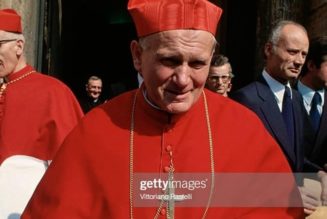
Then there was the search of the house of Fabrizio Tirabassi, one of the suspended Vatican officials. A Rome court later declared that the search warrant was “void” because it was an “informal” warrant, with “evident and substantial illegitimacy profiles, starting with the fact that the search order was ordered directly by the public prosecutor without going through the scrutiny of a judge.”
These words call into question the Vatican juridical system itself. The pope is a supreme judge who can instruct, make, and undo the processes.
An English judge has thought of this. Revoking the provision that had frozen the funds of Gianluigi Torzi, one of the intermediaries in the London property deal, the English judge Tony Baumgartner questioned the work of Vatican prosecutors, arguing that their reconstruction of the facts was subject to mischaracterization or misinterpretation.
This situation all started in June 2020 with Torzi’s arrest at the Vatican, where he had gone to answer questions from the Vatican police. Raffaele Mincione, an Italian citizen and the other broker involved in the London investment, was taken from a hotel and held in custody in Italy. He filed two lawsuits against the Holy See.
In three cases then — Marogna, Tirabassi, and Torzi — the Holy See’s requests have been overturned because of procedural defects.
This raises a series of questions that will undoubtedly catch Moneyval’s attention.
First: can a Vatican court be made up of part-time judges? They are experts, but certainly not in everything. Until now, the fact that the judges were part-time was justified by the small number of trials. But nowadays, everything has changed. Financial reform has brought new specializations and projected the Vatican system into the European system. Are part-time judges able to lead complex investigations such as those on the London property?
It is not even necessary that the judges be Italian. Knowledge of the Vatican legal system — which is not a copy of the Italian code but comes from a legal code of 1899 — and fluency in Italian would be enough. Judges from outside Italy could internationalize the Vatican system.
But Pope Francis has seemingly chosen the path of maintaining preferential relationships with Italy.
The second question: is this judicial activism good for the Holy See? The Holy See, in effect, sees its credibility undermined by a judicial system that does not understand the institutional consequences of its actions. The searches at the Financial Intelligence Authority and the Vatican Secretariat of State not only had a questionable justification; they also aroused the concern of international organizations.
In November 2019, the Egmont Group, which brings together financial intelligence units worldwide, decided unanimously to suspend the Holy See from the safe circuit of suspicious transaction reports. The Holy See then returned to the closed Egmont circuit in January 2020 after signing a memorandum of understanding with the Vatican tribunal. If there was a need for a memorandum of understanding, there was clearly a need for guarantees.
The Vatican’s anti-corruption commitment thus also shows limits and generates doubts about how justice is administered.
Alongside the topic of investigations and trials, there are recent judicial reforms that must also be considered.
One of the issues is that Vatican magistrates come out strengthened by the reforms. This can be seen through a symbolic detail of the revised law: that even after retirement, the judges will keep “all rights, assistance, welfare, and guarantees provided for citizens.” They have also been given extensive autonomy in investigating and condemning.
The reform also jeopardizes the appeal system. In February this year, Pope Francis appointed a promoter of justice for the Vatican Court of Appeal, the Italian magistrate Catia Summaria, to fill a post vacant since 2020. At the same time, two other judges were also appointed to the Court of Appeal.
But just three days after this announcement, Pope Francis signed a motu proprio bearing “changes in matters of justice,” which, in fact, significantly reduced the role of the Court of Appeal. Indeed, in practice, it seemed to eliminate the role of the promoter of justice.
How? Consider the pope’s changes and compare them to the original version of the CCCLI law (351), the new judicial system promulgated by the pope on March 16, 2016.
In the original law issued in 2016, paragraph 351 stated that “the office of the promoter of justice carries out the functions of the public prosecutor and the others assigned to it by law in autonomy and independence.”
The new text specifies that “the office of the promoter of justice exercises autonomously and independently, in the three levels of trial, the functions of the public prosecutor and others assigned to it by law.”
The law also says: “In appeals, the functions of public prosecutor are exercised by a magistrate of the office of the promoter of justice, designated pursuant to Article 13, paragraph 1.”
In short, there is no mention of the promoter of justice of the Court of Appeal, but only of a single promoter of justice.
These are issues that will not go unnoticed. In its report, Moneyval may highlight the need for full-time and professional judges and will likely once again notice a disparity between reports of suspicious transactions and prosecutions.
Moneyval will at least acknowledge that there is a will to change things. However, the reform and the trials are not good advertisements for the Vatican judicial system.
Join Our Telegram Group : Salvation & Prosperity







![The media are scapegoating Catholics for the Club Q shooting in Colorado Springs [WSJ paywall]…](https://salvationprosperity.net/wp-content/uploads/2022/12/the-media-are-scapegoating-catholics-for-the-club-q-shooting-in-colorado-springs-wsj-paywall-327x219.jpg)
